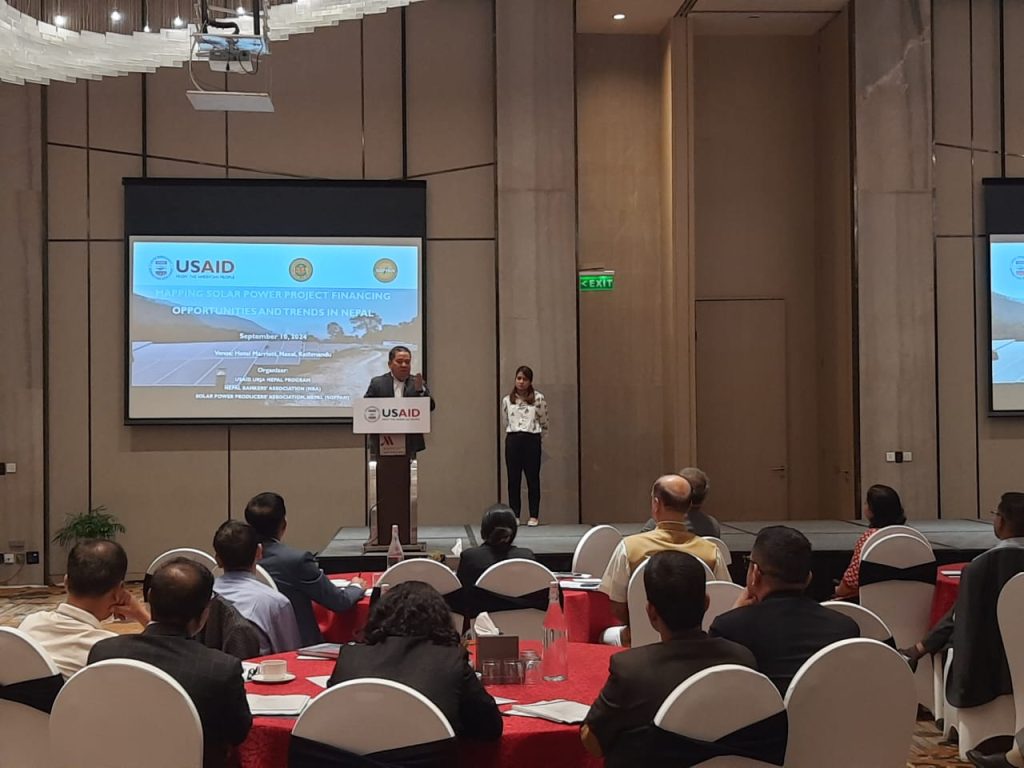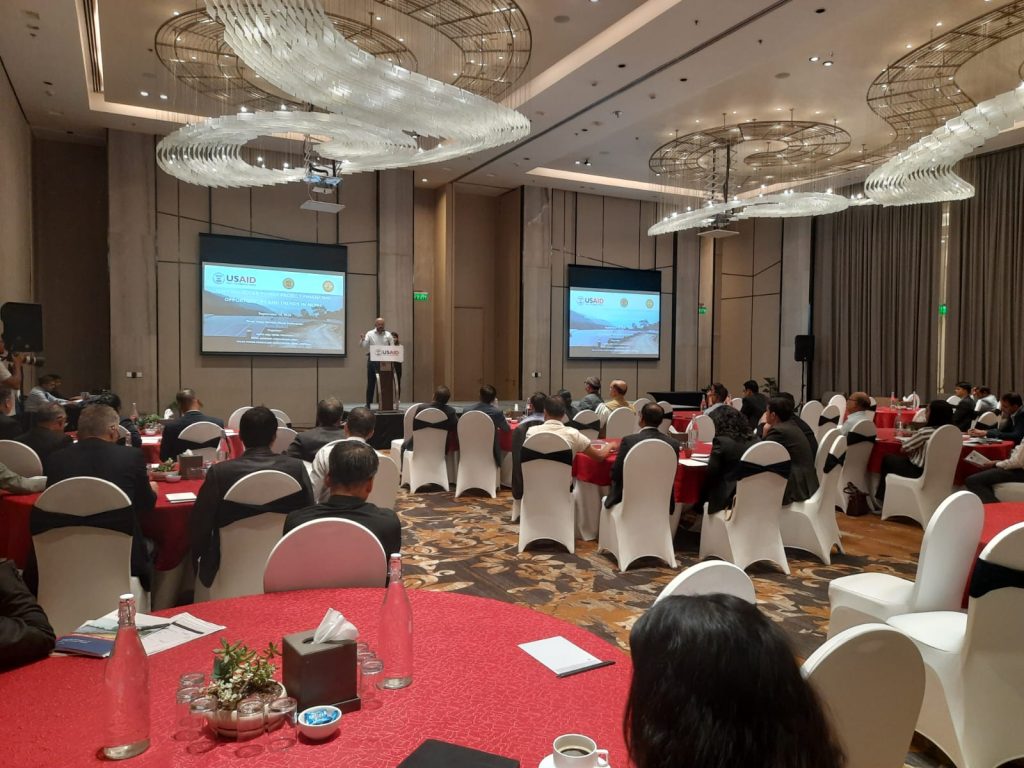Nepal Bankers’ Association (NBA), in collaboration with USAID Urja Nepal and Solar Power Producers’ Association, Nepal (SOPPAN) successfully organized a workshop titled “Mapping Solar Power Project Financing Opportunities and Trends in Nepal. The event brought together key stakeholders from Nepal’s energy and financial sectors to explore the future of solar power financing.
The workshop aimed to map the solar financing opportunities and trends within the country, providing participants with a comprehensive understanding of the roles that financial institutions play in solar utility power projects. The workshop’s discussions centered on the need for enhanced investment in solar infrastructure to meet the nation’s growing energy demands and reduce reliance on imported fossil fuels. Industry experts and representatives from leading institutions addressed the challenges and opportunities in financing solar power projects, with a particular focus on how commercial banks can support this emerging sector.

During the program, Mr. Ashok Sherchan, NBA Executive Committee Member and CEO of Prabhu Bank Ltd., delivered remarks highlighting Nepal’s significant potential for solar energy and its crucial role in diversifying the country’s energy mix. He emphasized the Government of Nepal’s efforts to promote clean energy and highlighted how commercial banks have aligned with these policies by investing over 370 billion in the energy sector in the fiscal year 2080/81, which represents around 9% of their total lending portfolio. Despite these efforts, Mr. Sherchan pointed out that Nepal continues to face energy challenge and remains heavily dependent on imported fossil fuels. He underscored the importance of solar energy as a viable alternative, offering a sustainable solution to reduce reliance on fossil fuels, foster a cleaner energy system, and align Nepal with global efforts to combat climate change.
Key sessions included presentations on innovative financing models, environmental and social impact standards, and solar project development strategies. Participants, including government representatives, financial institutions, and international development agencies, engaged in productive dialogue about the current regulatory landscape and potential public-private partnerships.
The workshop also featured a dynamic panel session where experts from key organizations, including the Solar Power Producers Association Nepal (SOPPAN), Ministry of Energy, Water Resources and Irrigation (MoEWRI), Nepal Electricity Authority (NEA), Electricity Regulatory Commission (ERC), Nepal Insurance Authority (NIA), Nepal Bankers Association (NBA) and German International Cooperation (GIZ) discussed the evolving landscape of solar project financing and development in Nepal.

The workshop underscored the critical need for strategic financial mechanisms, such as concessional loans and international grants, to make solar projects viable in Nepal. Speakers also emphasized the importance of conducting thorough environmental and social impact assessments to safeguard communities and ensure sustainable project development.
The workshop was participated by over 85 participants from various sectors, including government officials, development partners, officials from commercial banks and concerned stakeholders.



